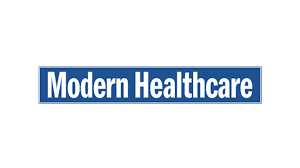 Costs & Cost Controls
Costs & Cost Controls
Federal grant cuts threaten hospital disaster readiness

Editor's Note Eliminating the Federal Emergency Management Agency’s (FEMA’s) key disaster preparedness grants could weaken hospital infrastructure and jeopardize care during future crises, according to a May 5 report in Modern Healthcare. As detailed in the article, the Trump administration has cut $3.3 billion in annual funding by ending the…
State AGs sue HHS over sweeping cuts

Editor's Note State attorneys general from 20 states filed suit to block major restructuring and layoffs at the Department of Health and Human Services (HHS), alleging the actions bypass Congress, violate federal law, and endanger public health. As detailed in a May 5 report from Fierce Healthcare, the lawsuit seeks…
Medtech giants move fast to blunt tariff impact without raising prices

Editor's Note Medtech companies are scrambling to contain the financial damage from rising tariffs without passing costs onto hospitals, according to a May 2 report in Modern Healthcare. Executives from industry leaders including Johnson & Johnson, GE HealthCare, and Intuitive Surgical outlined mitigation efforts during recent earnings calls, with most…
ASCA 2025: Leading lawmaker reflects on surgery center priorities

Editor's Note At the 2025 Ambulatory Surgery Center Association (ASCA) conference, discussion of legislative priorities extended beyond educational sessions. Thanks to a visit from the ranking lawmaker of the congressional subcommittee responsible for most healthcare policymaking, attendees also got first-hand insight into the latest negotiations on Capitol Hill. US Representative…
ASCA 2025: How accounting becomes an ASC revenue generator

Editor's Note Terry A. Bohlke, MSHA, CPA, CMA, CASC, emphasized that Rocky Mountain High Surgery Center is a pseudonym “to protect the innocent,” but the numbers he presented at the 2025 Ambulatory Surgery Center Association (ASCA) Conference & Expo in Denver last week were real enough. Based on actual scenarios…
ASCA 2025: Flexibility, foresight prevent costly ASC design mistakes

Editor's Note A thoughtful, operations-driven approach to ambulatory surgery center (ASC) facility design can prevent major delays, costly change orders, and inefficient workflows down the line, according to a May 2 presentation from Akshay Tavkar, MBA, CMPE, CASC, principal and managing director of Skyline Healthcare Solutions, LLC, at the Ambulatory…
How dialogue, data bridge the OR-SPD information gap

In the OR, precision and focus can mean the difference between life and death. However, surgical patient outcomes hinge on more than the competence of those working in these inherently intense environments. Every procedure also depends on the laborious, behind-the-scenes efforts of the people responsible for ensuring every surgical instrument…
Study: Colibactin-producing gut bacteria fuel colorectal cancer surge

Editor's Note Research published in Nature reveals that DNA damage caused by colibactin-producing gut bacteria is far more prevalent in younger patients with colorectal cancer, NBC News reports, suggesting a key factor behind the disturbing rise in cases among people under 40. According to the April 23 article, researchers from…
Study: Bariatric surgery offers cost, survival benefits for cirrhosis patients

Editor's Note Bariatric surgery improves survival and appears cost-effective over a decade for patients with obesity and compensated cirrhosis, according to an April 18 report in Healio. The findings, based on an analysis published in JAMA Surgery, suggest that bariatric surgery could fill a crucial gap in care for this…
Market volatility threatens hospitals’ liquidity as tariff-driven costs rise

Editor's Note Tariff-fueled market volatility is jeopardizing the investment returns that nonprofit hospitals rely on to bolster liquidity, manage debt, and weather ongoing operational headwinds, according to an April 16 report in Fierce Healthcare. As detailed in the article, hospitals face a dual threat: higher direct costs on supplies and…

 Free Daily News
Free Daily News